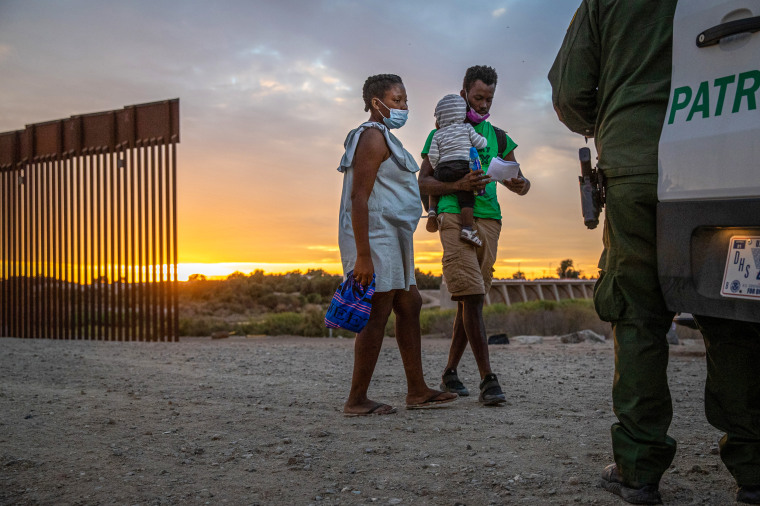WASHINGTON — The Supreme Court on Friday allowed the Trump administration to revoke the temporary legal status of more than 500,000 immigrants that was granted by the Biden administration, making them subject to deportation.
The court granted an emergency application filed by Homeland Security Secretary Kristi Noem that ends the Biden program that gave 532,000 people from Cuba, Haiti, Nicaragua and Venezuela permission to temporarily live and work in the United States.
The people directly affected by Friday's order may still have other avenues available to stay in the country, such as by applying for asylum, with their lawyers saying thousands have already sought to do so.
The brief order, which did not explain the court's reasoning, noted that liberal Justices Ketanji Brown Jackson and Sonia Sotomayor dissented.
Jackson wrote that the court had failed to take into account "the devastating consequences of allowing the government to precipitously upend the lives and livelihoods of nearly half a million noncitizens while their legal claims are pending."
The administration was contesting a ruling by Massachusetts-based U.S. District Judge Indira Talwani, who said the administration could not sweep each person’s status away without an individualized determination. That decision is now on hold while litigation continues.
"The Supreme Court has effectively greenlit deportation orders for an estimated half a million people, the largest such de-legalization in the modern era," said Karen Tumlin, a lawyer at Justice Action Center who represents affected immigrants.
"I cannot overstate how devastating this is: The Supreme Court has allowed the Trump Administration to unleash widespread chaos, not just for our clients and class members, but for their families, their workplaces, and their communities," she added.
Assistant Homeland Security Secretary Tricia McLaughlin said in a statement that the decision was a "victory for the American people" that corrected an error made by the Biden administration to allow "poorly vetted aliens" into the country.

Starting in 2022, then-Homeland Security Secretary Alejandro Mayorkas granted what is called parole for two years to people from the affected countries in part to alleviate the surge arriving at the U.S.-Mexico border.
The policy, known as the CHNV parole programs, allowed people to enter the country and stay if they passed a security check and had a sponsor in the United States who could provide housing.
Similar parole programs have applied to people from certain other countries, including those fleeing violence in Ukraine and Afghanistan.
Solicitor General D. John Sauer said in court papers that Talwani did not have authority to rule on the issue, with Noem given authority to make her decision under the federal Immigration and Nationality Act.
The same law gave Mayorkas the discretion to allow the affected people to enter and stay in the country. The Department of Homeland Security said in October 2024 that each person's parole would not be extended once their two-year approval period expired.
Noem's move to unwind the Biden action was challenged in court by individuals who would be affected, as well as the Haitian Bridge Alliance, an immigrant rights group.
Their lawyers wrote in court papers that Talwani's decision did not prevent Noem from ending the program, only that the government could not immediately rescind the status of the people already enrolled via a single sweeping order.
The dispute is one of dozens of cases in which the Trump administration has complained about lower court judges blocking its policies even as President Donald Trump has sought to aggressively expand the power of the presidency without the authorization of Congress.
In a separate case, the Supreme Court on May 19 allowed the administration to revoke temporary protected status for a group of almost 350,000 Venezuelans.
